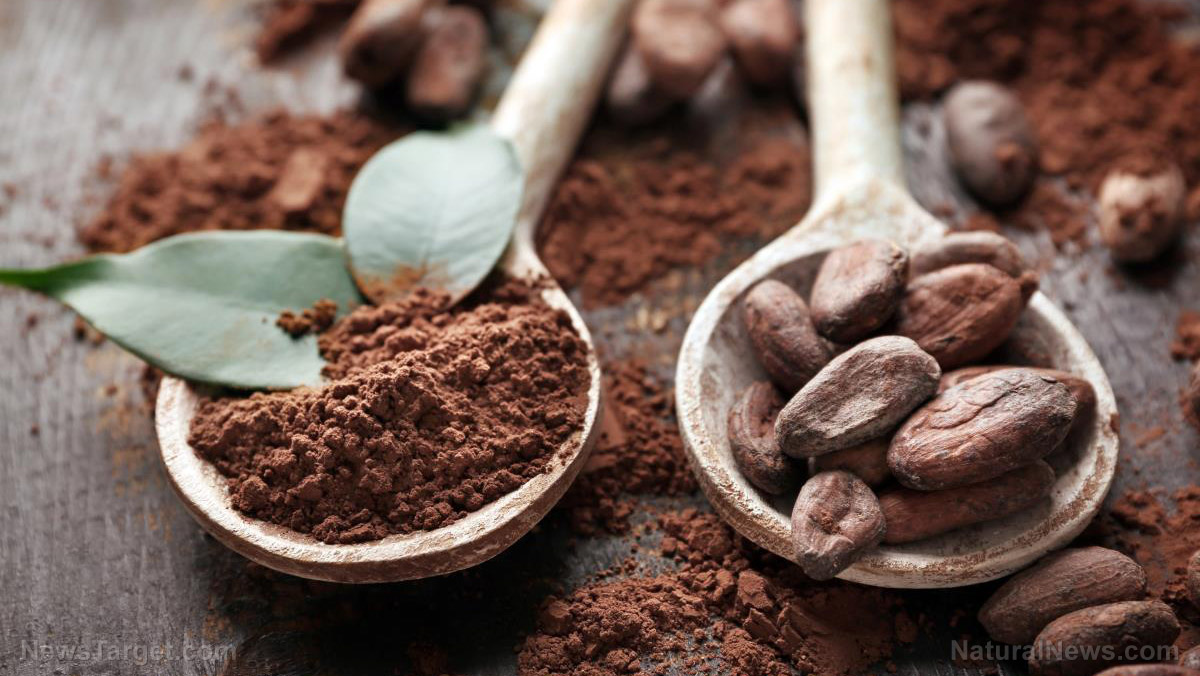Eating coriander protects your heart from damage
12/11/2018 / By Michelle Simmons

The heart is a very delicate organ of the body, and taking good care of it is important. One of the best foods you can eat to keep the heart healthy and protect it from heart failure is coriander (Coriandrum sativum). A study published in the Journal of Dietary Supplements found that the herb offers protective effects against heart failure.
Researchers at Hamdard Institute of Medical Sciences and Research (HIMSR) and Jamia Millia Islamia University in India carried out a study on rats to look at the therapeutic and protective effects of coriander extract on heart failure. For the study, they administered isoproterenol in rats to induce heart failure. Isoproterenol is a synthetic drug that can cause a faster heart rate and increased cardiac output.
After two weeks since the administration of isoproterenol, the rats developed heart failure as they experienced severe impairment in left ventricular functions, reduced baroreflex sensitivity, and significant changes in blood flow and lipid profile. The left ventricle is responsible for pumping oxygenated blood to the tissues all over the body, while baroreflex sensitivity helps regulate blood pressure. The rats with heart failure also had increased lipid peroxidation, which damages cell membranes, lipoproteins, and other molecules containing lipids, and increased expression of endothelin receptors.
When the researchers gave rats coriander extract, their left ventricular functions, blood flow, and baroreflex sensitivity dramatically improved. The treatment also suppressed lipid peroxidation, improved lipid profile, and reduced the expression of endothelin receptors.
The results of the study indicate that coriander extract can significantly protect the heart from heart failure. These protective effects of coriander may be attributed to its ability to improve left ventricular functions and baroreflex sensitivity, reduce lipid peroxidation, and regulate the expression of endothelin receptors.
Based on the findings of the study, the researchers concluded that consuming coriander can protect the heart from damage like heart failure.
More reasons to eat coriander
Coriander, also known as cilantro, is packed with many nutrients. Every part of this plant, its stems, leaves, seeds, essential oil, and root, all contain healing capabilities. It is a great source of dietary fiber, manganese, iron, and magnesium. Its leaves contain high amounts of vitamin C, vitamin K, and protein. This herb also contains small amounts of calcium, phosphorus, potassium, thiamin, niacin, and carotene. If these are not enough reasons for you to eat coriander, here are some of the health benefits of eating coriander:
Coriander fights oxidative damage: As mentioned in the Indian study, coriander inhibited lipid peroxidation. This is because coriander is a great source of potent antioxidants, such as catechin, alkanols, apigenin, and linalool. These antioxidants scavenge free radicals, which can cause damage to the body if not eliminated.
Coriander can help fight cancer: Because of its antioxidant properties, coriander can also help prevent cancer. Research has shown that its root extract inhibits DNA damage, prevents cancer cell migration, and promote cancer cell death.
Coriander helps treat diabetes: The leaf and stem extracts of coriander can lower blood sugar levels, according to a study in the Journal of Food Science. The extracts also may have helped beta-cells regenerate, improving blood sugar control.
Coriander decreases cholesterol levels: Its extract lowers total cholesterol, low-density lipoprotein (LDL) cholesterol, and triglycerides, according to studies.
Coriander prevents infection: Coriander oil contains powerful antifungal and antimicrobial effects, making it a great treatment against yeast infections. It is believed to have the ability to break down the cell wall of the pathogens, which prevents them from multiplying. (Related: Bright green coriander contains an array of medicinal oils with proven health benefits.)
Coriander detoxifies metals: Coriander can eliminate toxic metals like lead from the body, making it an excellent tool for protection from lead poisoning.
Coriander boosts memory: Coriander has been found to reverse memory deficits, according to a mice study. It also holds potential in the management of conditions like Alzheimer’s disease.
Read more news stories and studies on natural ways of keeping the heart healthy by going to Heart.news.
Sources include:
Tagged Under: alternative medicine, cilantro, Coriander, food cures, food science, grocery cures, Heart, heart failure, heart health, herbal medicine, Herbs, medicinal plants, natural cures, natural healing, natural medicine, natural remedies



















